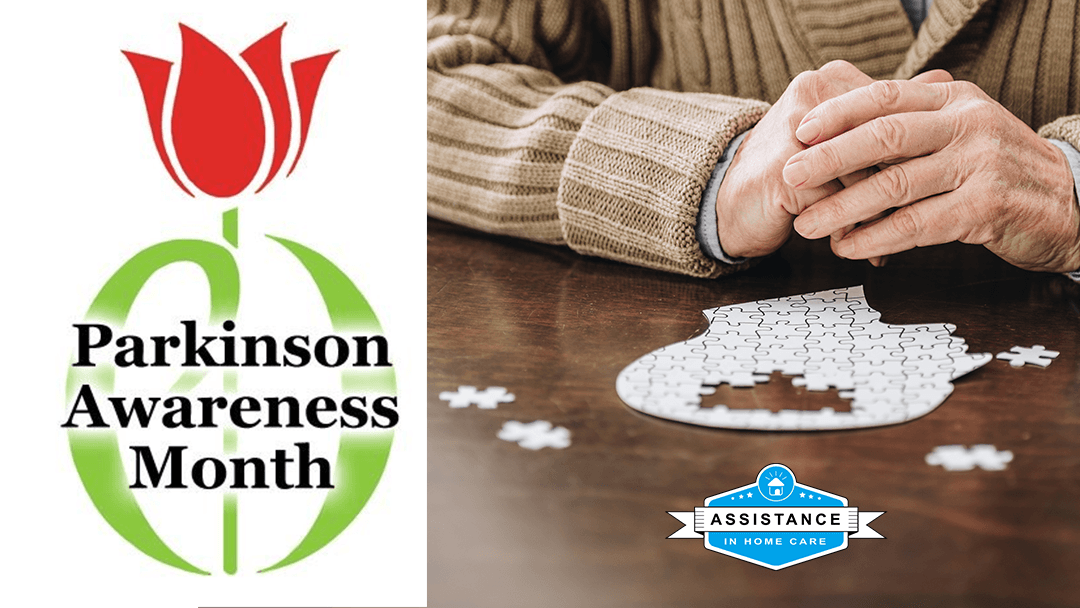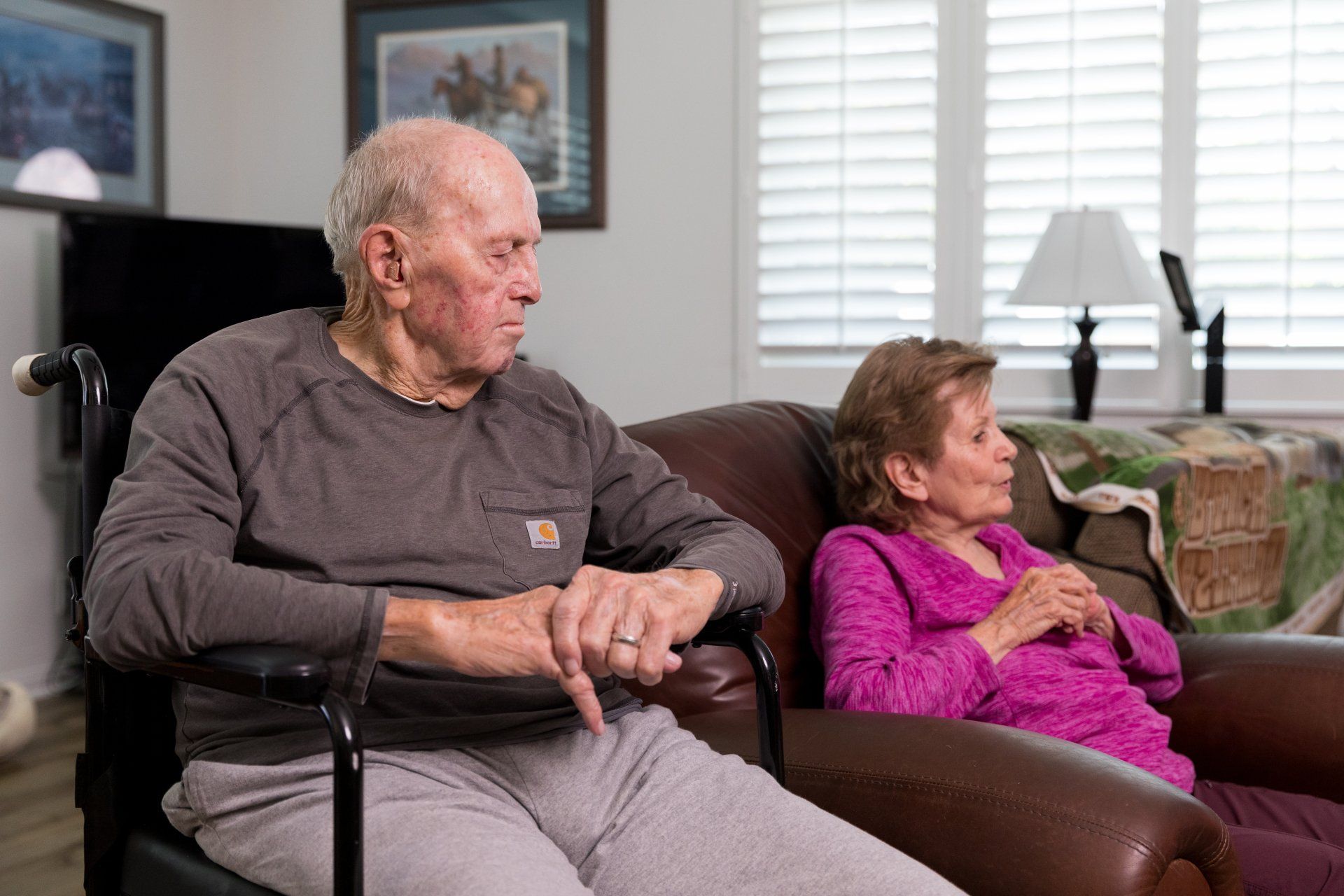Parkinson’s Awareness Month

Parkinson’s disease affects nearly 1 million people in the United States for those who are 60 years or older.1 The cause of the disease is still largely unknown as symptoms develop slowly over years, and although Parkinson’s isn’t fatal, the complications the dis-ease can create may become serious. Assistance in Home Care has compiled a list of early symptoms of the disease as well as tips for living with Parkinson’s to ensure that whether it’s you or a loved one, you have the knowledge to take the best steps towards your health.
Early Signs of Parkinson’s Disease
The first step to living comfortably with Parkinson’s disease is to understand the dis-ease and its progression. People with PD don’t start experiencing noticeable symptoms until later due to the number of neurons that have already been damaged or impaired.2 For instance, your arms may not swing when you walk, your speech may become soft or slurred, or your face may show little to no expression. Additional symptoms may also include:2
- Tremor in fingers, thumb, hands, or chin
- Small Handwriting
- Loss of Smell
- Trouble Sleeping
- Constipation
- Dizziness or Fainting
- Stooping or Hunching Over
It is recommended that you see your doctor if you notice any of these symptoms as your health care provider will be able to properly diagnose your condition and also rule out other causes for your symptoms.
Fighting Parkinson’s One Daily Routine at a Time
No doubt your life will change once you’re diagnosed with PD, however you’d be surprised what a healthy lifestyle can do to improve your quality of life and manage symp-toms. At the end of the day, it’ll be your attitude that will be your driving force towards a better daily life. Parkinson’s News Today has organized a list of helpful tips that you or a loved one may find useful.3
- Exercise: Daily exercise may have the greatest impact on the progression of the disease. Simple activities and one-minute meditations are a great way to ease yourself into the habit. Remember, it’s important to choose something that compliments your fitness level. Try exercising with friends, family, or other people with Parkinson’s. It keeps everyone accountable and pushes you to stick with the new routines!
- Healthy Eating: Who knew staying hydrated and maintaining a well-balanced diet was the secret? Although it may be challenging to get into the routine of eating healthy, remind yourself that it’s a marathon not a race. First, start with simple recipes that only contain a few ingredients such as precut meats and vegetables. Then, when you feel more confident, you can start trying new things and mixing them up! Smoothies for instance can make for a quick healthy snack at any time of the day.
Again, keep it simple and find the right recipes and routines that fit your lifestyle.
Comfortable Living with Parkinson’s
Although there is no standard cure for Parkinson’s Disease, we recommend talking with your doctor or health care provider to see what treatment is right for you. Treatments may include medications or surgical therapy in order to manage symptoms of PD. Under-standing your medication and sticking to a set schedule can make the task of tracking your medication less challenging.
Remember that Assistance in Home Care’s mission is to provide quality managed care to our clients within the comfort of their own homes. This includes the transition from one lifestyle to the next. Assistance in Home Care provides Companion Care where our team creates a personalized care plan for you or a loved one. These customized plans are designed to promote your physical and emotional well-being in order to empower you to live every day to the fullest.
Resources
- ParkinsonsDisease.net: https://parkinsonsdisease.net/elderly-population
- Parkinson’s Foundation: https://www.parkinson.org/understanding-parkin-sons/what-is-parkinsons
- Parkinson’s News Today: https://parkinsonsnew-stoday.com/2022/01/06/leading-healthy-lifestyle-with-parkinsons-2022/


